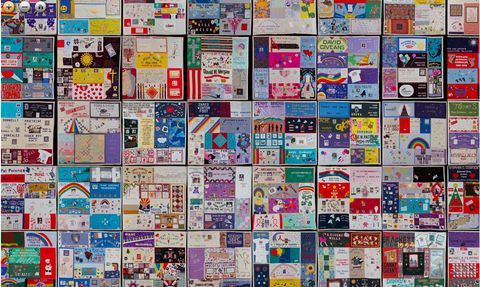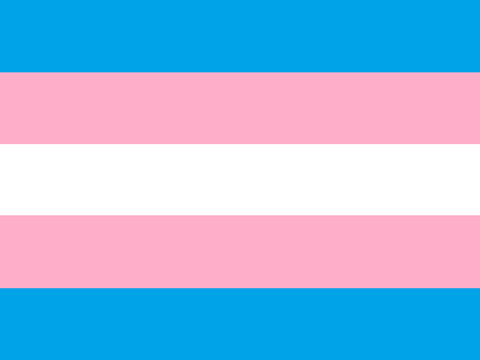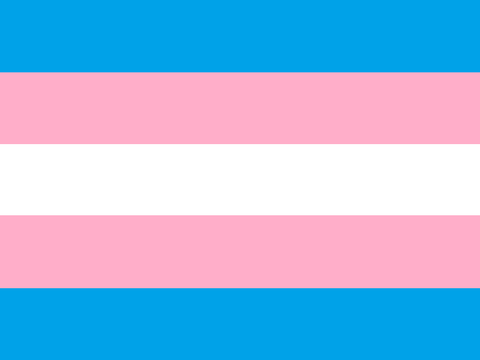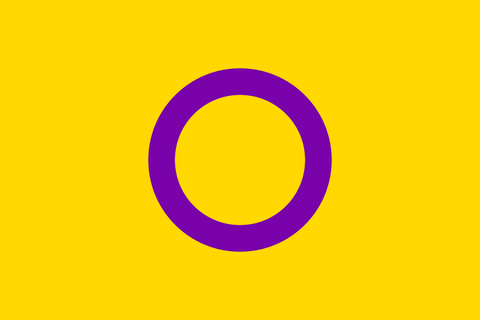5 Ways to Be a Better Ally to the LGBTQ+ Community
| Updated on
The LGBTQ+ community has made significant strides towards achieving equal rights, representation, and acceptance in recent years. However, there is still a long way to go, as discrimination, hate crimes, and social stigma continue to be major issues faced by the community. As an ally, you have the power to make a meaningful difference in the lives of LGBTQ+ individuals by becoming an advocate, voicing your support for their rights, and promoting inclusivity in your everyday actions.
At the heart of allyship lies compassion, empathy, and a willingness to learn and grow. It means acknowledging that LGBTQ+ individuals face unique challenges and barriers that are not faced by heterosexual or cisgender people, despite recent progress in LGBTQ+ rights and representation. Being an ally means prioritizing the voices and experiences of the community, centering them in discussions about LGBTQ+ issues, educating yourself about the community's history and contemporary issues, and actively working towards creating a more inclusive and accepting society.
As a society, we can all play a role in creating a world where each person is celebrated and valued for who they are and who they love. The following five ways to be a better ally to the LGBTQ+ community will spark important conversations and actions that can help achieve that goal.
Article continues below
1. Educate yourself
To be a better ally to the LGBTQ+ community, it is crucial to invest time and effort in educating yourself about their history, experiences, challenges, and successes. Start by reading books, articles, and essays written by LGBTQ+ authors. This will provide you with a deeper understanding of their perspectives, struggles, and the contributions they have made to society. Additionally, documentaries, films, and podcasts can serve as valuable resources for gaining insights into various aspects of LGBTQ+ lives and communities.

It is also essential to familiarize yourself with the terminology used within the LGBTQ+ community. Gender identities and sexual orientations can be complex, and misunderstandings can contribute to discrimination and exclusion. By taking the time to educate yourself about terms such as transgender, non-binary, asexual, and others, you will be able to engage in conversations with respect and sensitivity. Remember, education is an ongoing process, and being open to learning from diverse voices and experiences will deepen your understanding and make you a more effective ally.
Expanding your knowledge beyond familiar LGBTQ+ stories is also crucial. Take the time to learn about the intersectionality of identities, recognizing that individuals can face multiple forms of discrimination based on their race, ethnicity, disability, religion, or socioeconomic background, in addition to their LGBTQ+ identity. This intersectional perspective will help you better understand the complexity of experiences within the community, and how different forms of oppression can intersect and compound each other. By challenging and expanding your understanding, you can actively combat stereotypes, prejudices, and biases that may exist within yourself and society at large, ultimately creating a safer and more inclusive environment.
Article continues below
2. Listen and learn
One of the most impactful ways to be a better ally to the LGBTQ+ community is to listen and learn from their lived experiences. Each person's journey is a unique tapestry of challenges, triumphs, and self-discovery, and by taking the time to listen, you can gain valuable insights into the complexities of LGBTQ+ lives. Approach conversations with an open heart and a willingness to learn, free from judgment or preconceived notions.
Listening goes beyond hearing words; it's about creating a space where LGBTQ+ individuals feel comfortable sharing their stories. When someone opens up to you, whether it's a friend, coworker, or family member, offer them your full attention. Let them express themselves without interruption or imposition of your own perspectives. Understand that some individuals may choose not to share their experiences, and that's okay too. Respect their boundaries and be patient – building trust takes time.
Learning from the experiences of LGBTQ+ individuals can reshape your understanding of the challenges they face. It can also guide your advocacy efforts by shedding light on the specific issues that require attention. Online resources, documentaries, books, and podcasts are excellent tools to further educate yourself about LGBTQ+ history, struggles, and accomplishments. Remember, your role as an ally is to amplify their voices, and the first step towards that is to listen with empathy, learn with an open mind, and carry the insights gained into conversations and actions that promote understanding and change.
Article continues below
3. Use your voice
As an ally, your voice holds the power to create ripples of change that extend far beyond your immediate circle. Speaking up against LGBTQ+ discrimination and misinformation is an integral part of your role in supporting the community. While it might sometimes feel uncomfortable or challenging, using your voice to challenge harmful stereotypes and misconceptions is crucial in promoting understanding and dismantling bias.
Correcting misinformation and challenging discriminatory remarks can be done respectfully and tactfully. Often, people may not be aware of the impact of their words or actions. Approach these conversations with patience and empathy, offering alternative perspectives and sharing accurate information. By doing so, you're not only advocating for the rights of LGBTQ+ individuals but also fostering a more inclusive environment for everyone.
Your voice can extend to social media platforms as well. Sharing educational resources, articles, and stories that highlight LGBTQ+ issues can help spread awareness among your online connections. Use your privilege to amplify LGBTQ+ voices by sharing their stories and experiences, particularly during Pride Month and other relevant occasions. Remember, your words have the power to challenge stereotypes, change hearts and minds, and contribute to a more accepting world for LGBTQ+ individuals.
Article continues below
4. Show Up and Show Support
Attending LGBTQ+ events, marches, and rallies is a powerful way to demonstrate your solidarity as an ally. Your presence at these gatherings sends a clear message of support to the LGBTQ+ community, showing that you stand alongside them in their fight for equality and acceptance. Whether it's a vibrant Pride parade, a panel discussion, or a workshop, your participation matters and contributes to the collective strength of the movement.

By showing up at LGBTQ+ events, you're creating a visible presence of allyship. This visibility not only boosts the morale of LGBTQ+ individuals but also encourages others to consider their own roles in promoting inclusivity. Your attendance helps foster a sense of community and belonging, reminding LGBTQ+ individuals that they are seen and supported by people from all walks of life.
Participating in events also offers an opportunity to learn more about the challenges and triumphs of the LGBTQ+ community directly from its members. Engaging in conversations, attending talks, and participating in workshops can deepen your understanding of their experiences. Additionally, these events often provide a platform for you to connect with other allies, fostering a sense of camaraderie and shared commitment. Your presence at LGBTQ+ events is a visible reminder that allyship is active, ongoing, and crucial in the journey towards a more inclusive society.
Article continues below
5. Support LGBTQ+ organisations and causes
A crucial way to be a better ally to the LGBTQ+ community is by actively supporting organizations and causes that advocate for their rights and well-being. These organizations play a vital role in providing resources, support, and initiatives that uplift LGBTQ+ individuals and work towards dismantling systemic discrimination. Your financial contributions, volunteer efforts, and amplification of their work can make a significant impact in advancing equality and creating positive change.
For example, Heckin’ Unicorn doesn't just design and sell pride merch, but also actively advocates for LGBTQ+ rights in Singapore. Supporting queer-run and queer-owned organisations such as Heckin’ Unicorn directly contributes to the work we provide to the community.
Whether it's funding mental health resources, supporting LGBTQ+ youth, or organizing educational campaigns, your contributions help LGBTQ+ support organizations continue their important work. Many LGBTQ+ organizations rely on donations to sustain their efforts, so your financial support, no matter how small, can help them create meaningful change.
Volunteering your time and skills is another impactful way to support LGBTQ+ causes. Whether it's assisting with events, participating in awareness campaigns, or lending your expertise, your involvement strengthens the capacity of these organizations to drive change. Volunteering not only helps expand the reach of their initiatives but also allows you to engage with the LGBTQ+ community directly, gaining insights into their needs and concerns. By standing in solidarity with LGBTQ+ organizations and their causes, you're actively contributing to the collective effort towards a more inclusive, equitable, and accepting society.
Article continues below
Conclusion
Being a better ally to the LGBTQ+ community is not just a one-time effort but an ongoing commitment to creating a more inclusive and accepting society. It is essential to recognize that allyship requires self-reflection, constant learning, and a willingness to challenge our own biases and prejudices. By educating ourselves about LGBTQ+ history, understanding their struggles, and actively listening to their experiences, we can become better equipped to support and advocate for their rights.
Moreover, being a better ally involves using our privilege to amplify the voices of LGBTQ+ individuals and advocating for their rights and representation. This includes using inclusive language, standing up against discrimination, and actively supporting LGBTQ+ organizations and causes. By taking these actions, we can contribute to societal change, foster empathy, and build a world that celebrates and respects the diversity of sexual orientations and gender identities.
Remember, allyship is not about speaking for the LGBTQ+ community but rather standing alongside them as they navigate a world that may not always be accepting. It is about actively listening, learning, and engaging with their experiences to create a more inclusive and supportive environment. Together, through our commitment and actions, we can continue to make strides towards equality, acceptance, and celebration of the LGBTQ+ community. Let us embrace allyship as a lifelong journey of growth and advocacy, and create a brighter future for all.





